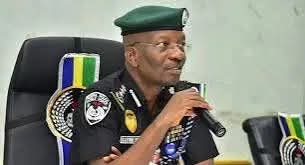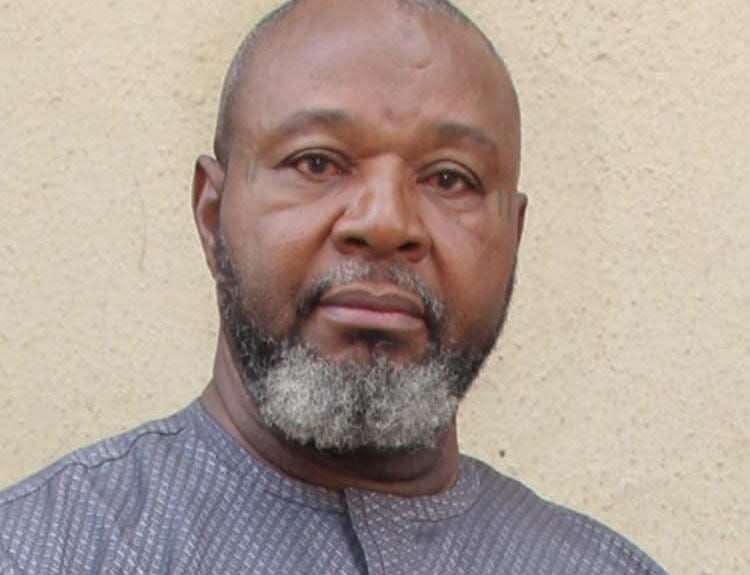By Emeka OmeiheFederal Capital Territory (FCT) police command, is seriously worried that offering its officers bribe or other forms of inducement will compromise their duties, taint the integrity and credibility of that institution. It therefore cautioned the public last week, to desist from such acts as they are not only unlawful but could impede the performance of the responsibilities of the officers.
“It is unlawful to give our officers money or any form of inducement while they are performing their duty. Let them discharge their responsibilities diligently without interference”, the FCT Police command stated. This is the second time in three months, the police command has come out with this admonition.
Last June, its Commissioner of Police (CP), Ajao Adewale similarly cautioned residents against offering bribe to police officers as it is a criminal offence under section 118 of the Penal Code Act. He had then warned officers to stop illegal detentions, extortions and unlawful interference in civil disputes particularly land-related cases.
Re-emphasising that bail is free, he warned that any officer found demanding money for bail or documentation will face severe disciplinary action. Before now, the Inspector General of Police (IGP), Kayode Egbetokun had also issued copious warnings on police zero tolerance for extortion, corruption and impunity.
He ordered the specialised units including the IGP X squad, the monitoring unit and the Complaint Response Unit to intensify their oversight functions in tacking these unethical practices.
The warnings came amidst mounting complaints by residents of unlawful detention of individuals over bailable offences, demand for money before commencement of investigations and police involvement in matters clearly outside their jurisdiction.
The sermon from the FCT police command amplifies the concerns by the IGP. But there is a substantial difference in the approach of the FCT command to the matter.
It is not just confronting the cankerworm from the angle of police officers who compromise their duties by asking for and receiving bribe or other forms of inducement. No! It recognises that in this fight, there are two sides to the coin-the giver and the receiver. It works from the prism that if there are no givers of bribe, there will be no receivers. That goes without saying.
The sermon is justifiably propelled by the logic that a comprehensive and realistic fight against corruption cannot make any headway without tackling the two sides in the game. If those who offer bribe refrain from such acts, police officers will not have any choice than to carry out their duties in accordance with the demands of their offices.
The sermon goes beyond the police institution to touch on the key role of the public in the fight against corruption in public places. It seeks to make the case that, corruption within the police institution and in our national life, will continue to suffer reverses as long as the public continues to aid and abet it.
That is not to whittle down the overarching pressure rogue police officers could exert in exacerbating the malfeasance. Rather, it is an admission of the efficacy of a two-pronged approach in addressing the harm wrought on the nation’s institutions by suffocating corruption.
That seems the essence of the gospel by the FCT police command. But the issue is not just about the conduct of FCT residents or police officers in that command. It mirrors the larger moral decay in the society and the constraints it poses in the quest for economic, social and political development.
Good a thing, the FCT police recognises that for the fight against corruption to gain traction, the attitudinal disposition of the public towards the matter must change. It strikes as a clarion call on the public to resist the temptation to offer bribe even when pressured by some unscrupulous officers.
It remains to be seen how much impact moral suasion will make on FCT residents on the subject matter. Even if it succeeds in dissuading residents from offering bribe to police officers, that would still amount to scratching the surface of the pervasive corruption that inundate all facets of our public life.
As valuable as the gospel from the FCT police command is, it cannot go far in addressing the complex issues that have overtime rendered the war against corruption a nagging illusion. This is in spite of proclamations by governments after government to tame the monster.
Police appeal for public cooperation highlights other potent dimensions to the fight against the scourge. It should re-direct the minds of this country’s leadership to the complexities presented by the current strategies in the fight against the social malaise. The leadership of the police has been issuing constant warnings to officers on what awaits those caught receiving bribe and other forms of gratification.
How far such preachments can go in bringing about rapid attitudinal change in a society characterised by weak institutions and processes is anybody’s guess. Weak institutions erect an environment where corruption thrives due to lack of accountability, transparency and effective enforcement mechanisms. That is the dilemma in Nigeria’s situation and the reason the fight against corruption has not recorded reasonable progress.
The National Bureau of Statistics (NBS) and the United Nation’s Office on Drugs and Crime (UNODC) in a report published in August 2017 rated police officers and Judges as the most corrupt in Nigeria. The report was based on a survey conducted in April and May ,2016 across 36 states and the FCT.
Though the police authorities cited empirical and survey instrument defects as well as inability of the report to factor in their achievements during the period to fault the survey, that rating does not appear to have significantly altered.
In May last year, an Inspector attached to the Imo state police command was demoted after he was caught on camera collecting bribe from motorists on the Owerri-Onitsha expressway. That is just a tip of the iceberg in the mindless extortions that take place at various police formations and checkpoints across the country.
And in April this year, some police officers were caught on a viral video receiving money from a Chinese national. It was such a huge national embarrassment. Police authorities described the incident as “unprofessional and unethical”, with a promise to discipline those involved.
The FCT police command must have been so frustrated in fighting corruption given extant realities, that it had to resort to sermonizing to arouse the consciousness and seek the cooperation of the public. They have good reasons for it.
So, it is not just all about placing the blame at the doorstep of police officers. The public also shares in it. They are culpable when they show scant regard for law and order. And when they run against the law in many civil matters, they seek quick escape by compromising the law enforcement agents.
But that cannot explain the mindless open extortions by unscrupulous police officers across the country. Neither can it rationalise the demands for money for bail or touted documentation processes. Pervasive corruption bears positive correlation with the material conditions of a people. Especially so, where national wealth is not deployed for public good but rather appropriated by a self-serving privileged few.
Fighting corruption is a huge national challenge. It is not just a matter for police authorities alone. Corruption trickles down from the leadership at the highest levels to the grassroots. Corruption is officially instituted when elections are rigged by hook and crook; it manifests in vote buying and sundry electoral infractions that subvert the collective will of the electorate. It demands drastic and holistic national therapy.
Corruption is at the root of the inability of this country to record meaningful progress in economic, social and political spheres. Empirical evidence has consistently shown that the higher the level of corruption, the lower the level of economic growth and development and the vice versa. That is the stark reality facing the country as it continues to rank low globally on most development metrics.
The choice is ours. It is either we confront corruption headlong and quicken the pace of national progress and development or stagnate. Something more fundamental and far-reaching, including value change and re-orientation in the mould of the sermon from the FCT police command will make the difference.
It will entail leadership by example rather than precept.






